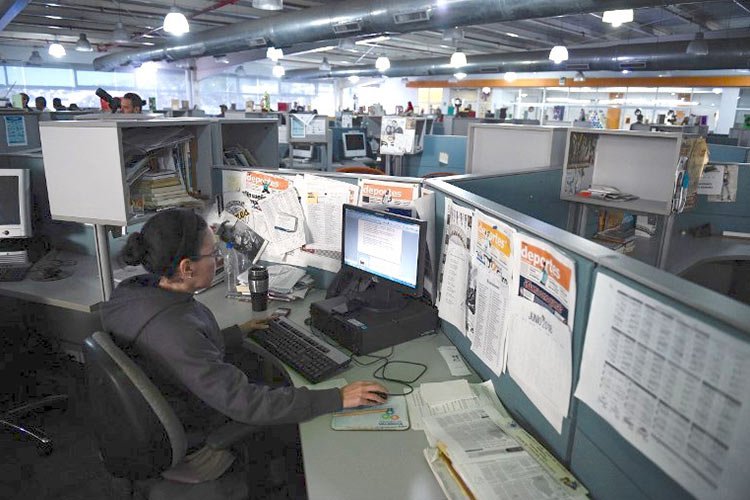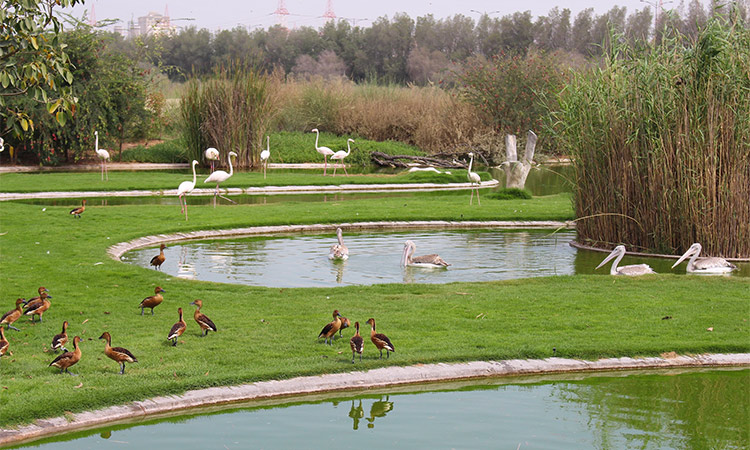Artificial Intelligence journalism will cross boundaries, serving all of humanity


Artificial Intelligence journalism will provide free exchange of information between nations.
World population is projected to reach 9.8 billion in 2050. With the big technological development in various fields, the world may be looking for a Fifth Industrial Revolution whose technologies will overtake the Fourth Industrial Revolution that has begun to show some of its tools. So how can Artificial Intelligence (AI) journalism serve mankind more humanely?
As we have already discussed before in several articles about the aspects of AI journalism, now let’s look at what will follow the optimal use of the Fourth Industrial Revolution techniques, so that the new Media Revolution can help support it further. A: Artificial Intelligence journalism will provide free exchange of information, figures, data and facts between countries, where there will be no limit to the monopoly of information by private or governmental companies and institutions
B: Artificial Intelligence journalism will work to support the United Nations goals of Sustainable Development Goals, the most important of which is to contribute to end poverty.
While global poverty rates have been cut by more than half since 2000, one in ten people in developing regions are still living with their families on less than the international poverty line of $1.90 a day, and there are millions more who make little more than this daily amount. Significant progress has been made in many countries within Eastern and South eastern Asia, but up to 42 per cent of the population in Sub-Saharan Africa continue to live below the poverty line, according to United Nations’ report.
While Artificial Intelligence journalism helps to highlight different opportunities and challenges in different regions of the world, with the transparency in the information, in transferring, in analysing big data, and in the availability of open data, it will help enhance the state’s power to end poverty and provide more livelihood opportunities which will be more welfare oriented than before.
Artificial Intelligence journalism will also contribute in strengthening good quality education opportunities and providing new tools based on robots and cloud computing. That will open the door for students from all over the world to access universities for free, and get educated with the lowest costs, thus to strengthen the fourth objective of sustainable development goals which is to ensure good, fair and inclusive education and to strengthen lifelong learning opportunities for all.
Obtaining quality education is the foundation to creating sustainable development. In addition to improving quality of life, access to inclusive education can help equip locals with the tools required to develop innovative solutions to the world’s greatest problems, according to United Nations.
As it stands today, enrolment in primary education in developing countries has reached 91 per cent but 57 million primary age children remain out of school. More than half of children that have not enrolled in school live in sub-Saharan Africa. While an estimated 50 per cent of out-of-school children of primary school age live in conflict-affected areas. And 617 million youth worldwide lack basic mathematics and literacy skills.
With all these frightening figures, Artificial Intelligence journalism will work on reducing the gaps and ensure good education at the lowest cost, especially for the developing world.
At the end, Artificial Intelligence journalism will contribute to strengthen the role of governments and institutions in achieving sustainable development and reaching a more human globalisation level for the benefit of humanity.
Artificial Intelligence journalism will provide the world with new tools, which will contribute to the expansion of the urban space and ensure easy telecommunications and communication in cities. The world’s cities occupy just 3 per cent of the Earth’s land, but account for 60-80 per cent of energy consumption and 75 per cent of carbon emissions, according to the United Nations. Half of humanity – 3.5 billion people – lives in cities today and 5 billion people are projected to live in cities by 2030. 95 per cent of urban expansion in the next decades will take place in developing world, while 883 million people live in slums today and most are found in Eastern and South-Eastern Asia.
Artificial Intelligence journalism will contribute significantly to the diversity of jobs and skills within cities, ensuring access to basic services, energy, housing and transportation made more equitable. All the problems of the world will be broadcast live by satellite, and no government would be isolated from each other. The world will turn from a Small Village on a Small Screen.
The next article will deliberate on the other development goals of Artificial Intelligence journalism.







